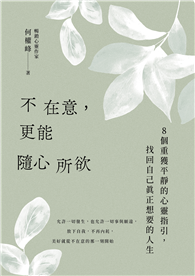Benjamin Franklin was the first to report the phenomenon of oil's power to still troubled waters and to speculate on why it happened. A century later Lord Rayleigh performed an identical experiment. Irving Langmuir did it with minor variations in 1917, and won a Nobel Prize for it. Then Langmuir's work was followed by a Dutch pediatrician's in 1925. p Each experimenter saw a little more in the result than his predecessor had seen, and the sciences of physics, chemistry and biology have all been illuminated by the work. p Charles Tanford reflects on the evolving nature of science and of individual scientists. Recounting innovations in each trial, he follows the classic experiment from Franklin's drawing room to our present-day institutionalized scientific establishments and speculates on the ensuing changes in our approach to scientific inquiry.
| FindBook |
|
有 1 項符合
Tanford的圖書 |
 |
$ 1739 | Ben Franklin Stilled the Waves: An Informal History of Pouring Oil on Water with Reflections on the Ups and Downs of Scientific Life in General
作者:Tanford 出版社:OUP Oxford 出版日期:2004-06-10 語言:英文 規格:平裝 / 269頁 / 19.8 x 12.7 x 1.5 cm / 普通級/ 初版  看圖書介紹 看圖書介紹
|
|
|
圖書介紹 - 資料來源:博客來 評分:
圖書名稱:Ben Franklin Stilled the Waves: An Informal History of Pouring Oil on Water With Reflections on the Ups and Downs of Scientific
內容簡介
|











